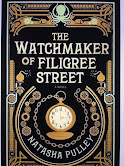A Writer's Toolbox: What is Scrivener?
By Theresa Gauthier
I’ve often thought it might be best to write that way, but the truth is, I’m as much a product of modern technology as the next person—though I do carry a journal and a pen with me everywhere in case I find myself with a great idea and a bit of time.
When I was in grade school, all my school reports and short stories were written long hand. When I was in college, I had an electric typewriter. Now, I usually write on my laptop. Of course, I can write using any of those methods, but there are a lot more tools these days for writers who want to stay organized, track their progress, and have all the extensive notes they take at their fingertips.
One of the best purchases of my life was Scrivener. I adore this software, and I’m certain I’m not even using all of the bells and whistles that make it both fun and effective.
Scrivener isn’t just a word processing program. Set up as a program to help writers write, it does that and so much more. For ease of use, for keeping track of what you’ve written, and even for compiling the book, Scrivener may be a writer’s best friend.
It’s excellent for character development, and has a template for you to note the characteristics of each of your characters whether they be major or minor. I’ve tweaked mine, and I imagine most writers do. Tracking what your characters say, their methods of speech, their backstory, their lineage/genealogy, siblings, ancestors, likes, dislikes, catchphrases, anything you want to track can be easily included and accessed.
Worldbuilding is even easier. You can save websites to the program for easy access, or save a collage of inspiring photographs. You can contain all of your research write where you can find it, compare it, sift through it and turn it into the world you see in your mind’s eye.
You can keep notes on the history of each character, of their families, of their towns, countries, etc. Anything you think might be useful to know. Even if you don’t use all of the details in your writing, just knowing more about your characters will inform how your character will act and react to the events of your novel. Details are the foundation of any good story.
There’s a separate place for research, notes, ideas, and you can set up chapters or sections however you prefer to organize it. When you’ve finished a draft, you can even have it compiled into a printed version of your manuscript if that’s how you’d like to proofread it.
There are classes, of course. You can rewatch a tutorial anytime you think there might be a better way to do what you’re doing. There are online seminars, instructors, and webinars—some for a fee, and if you look hard, you might just find some that are free.
Scrivener is a brilliant program. I’m glad I found it.







Comments
Post a Comment